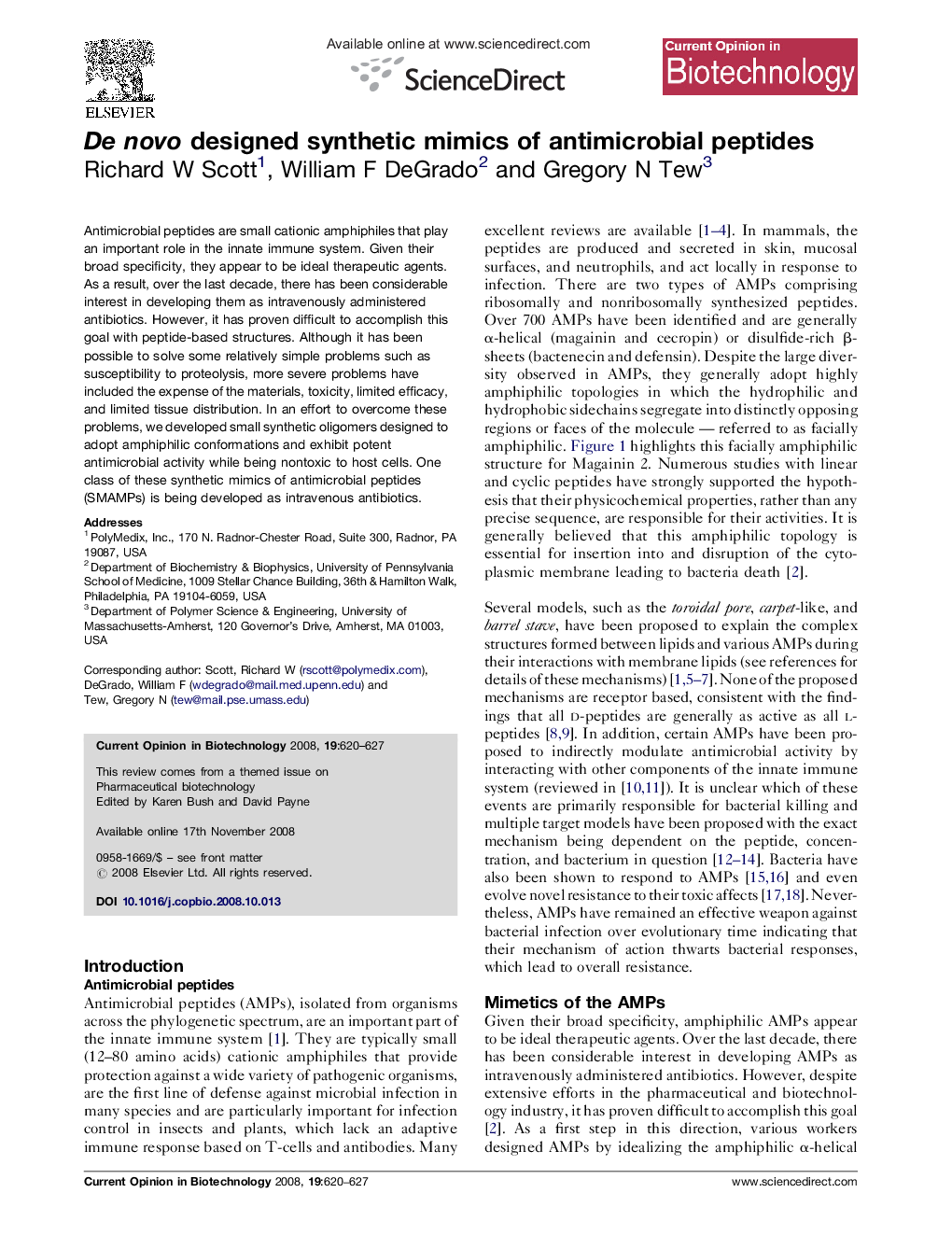| Article ID | Journal | Published Year | Pages | File Type |
|---|---|---|---|---|
| 16672 | Current Opinion in Biotechnology | 2008 | 8 Pages |
Antimicrobial peptides are small cationic amphiphiles that play an important role in the innate immune system. Given their broad specificity, they appear to be ideal therapeutic agents. As a result, over the last decade, there has been considerable interest in developing them as intravenously administered antibiotics. However, it has proven difficult to accomplish this goal with peptide-based structures. Although it has been possible to solve some relatively simple problems such as susceptibility to proteolysis, more severe problems have included the expense of the materials, toxicity, limited efficacy, and limited tissue distribution. In an effort to overcome these problems, we developed small synthetic oligomers designed to adopt amphiphilic conformations and exhibit potent antimicrobial activity while being nontoxic to host cells. One class of these synthetic mimics of antimicrobial peptides (SMAMPs) is being developed as intravenous antibiotics.
